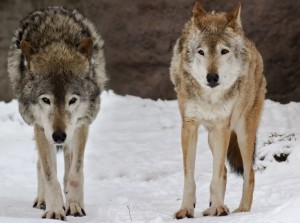Dogs and ancient humans got along far better than previously thought

Recent studies suggest that humans and early dogs worked so well together that man domesticated the species no matter where they were.
The dog has been known as man’s best friend for as long as people can remember. Our far ancestors might have been more inclined to agree with us than we previously thought, according to a report on The Verge.
Recent research has suggested that our ancestors were so fond of dogs that they domesticated them not once but multiple times separately and in different eras. The prevailing theory suggests origins in east Asia and western Eurasia. This contradicts the current popular understanding that dogs descended from one group of wolves that lived closely with early humans.
Extensive data pulled together by different researchers tend to support this theory of multifaceted domestication, indicating that different groups of isolated early humans domesticated early dogs. These dogs later interbred to produce what would eventually become the modern canine species.
Experts are now poring over additional data to try and bridge the gap as to when these separately domesticated early dogs may have come together in order to properly trace the lineage of man’s most beloved companion.
Additionally, knowing the history of canines may also shed more light into the lives of early man given that both species lived so closely. Alfred Bayle














